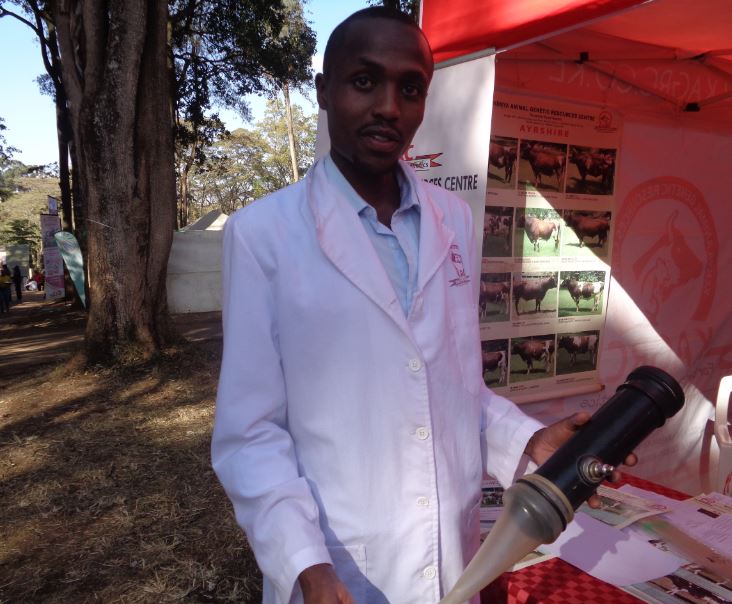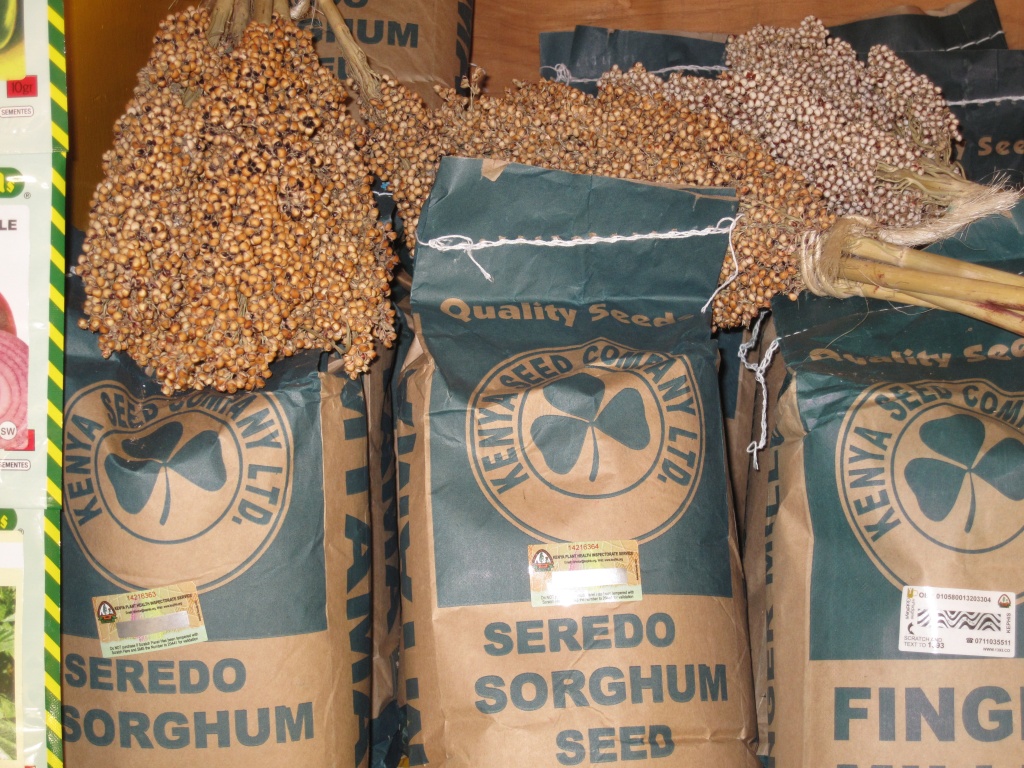Livestock farmers within Nairobi and its environs are set to benefit from a free farmers field day organized by the Kenya Animal and Genetics Resource Center s in Lower Kabete, Nairobi County on 29th November, 2017 at 9.00 a.m. The theme of the field day will be enhancing livestock productivity through modern technologies in animal genetics for food security and national development and will be graced by agriculture Cabinet Secretary Willy Bett.
Related article: Agro-outlet ease farmers’ life through farm inputs and direct market linkage
Limited on-farm and off-farm processing of agricultural produce has translated to low prices, fewer job opportunities and eventually low income for farmers. This can be attributed to the challenge of inadequate adoption of new technologies and innovations, managerial and technical skills to effectively establish and manage viable agribusinesses.
KAGRC livestock expert, Eliud Mwangi holding an artificial vagina used to collect semen from bulls at the 2017 Nairobi International Trade Fair
KAGRC advices farmers on how to rear breeding bulls for provision of high quality disease free semen to meet the national demand for export, they will also train farmers on semen collection, semen production and distribution, semen storage and training of agents to work on their behalf.
Related article: Dairy goat farm changing farmers’ lives through trainings
According to KAGRC Livestock expert Mwangi Eliud, farmers need to develop a dynamic and competitive agribusiness which requires not only enhanced technical and managerial skills but also greater marketing orientation and networking; better market information and better linkages with service providers.
Smallholder dairy production in Kenya accounts for over 70% of the total milk production and supports more than 600,000 smallholder dairy farmers.
What will be done?
Smallholder farmers will be taught on the need to develop business plans with the assistance of agricultural extension officers to guide their projects to successful implementation. Business planning is important to a beginner farmer as it helps them plan for the economic sustainability of a new farm enterprise.
Related article: Agriculture center creates millionaires through free trainings
Many farmers in rural areas do not have the most up-to-date information on how to manage their animals efficiently and economically. Improving their knowledge of new techniques and technologies, in addition to providing them with any physical resources necessary for implementation, can dramatically increase the farmers’ level of productivity
Educating farmers’ leads to increased local food availability, increased farmer income and increased sustainability of agricultural practices.
Farmers need to form smallholder groups in order to maximize the power of numbers in input and output acquisition and in marketing their produce.
With all the above to be done, farmers will thus be assured of better management of their farms so as to increase productivity, earn more income and ensure their animals are well taken care of.
Write comment (0 Comments)


















